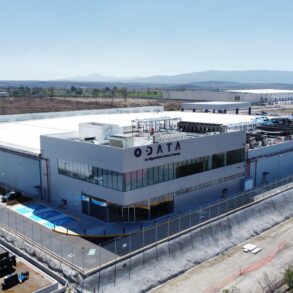Data Center redundancy: more security and stability for your company
6 minutes readingData Center redundancy is one of the main requirements for any organization’s corporate network structure to operate with tranquillity, security and efficiency. This is because the unavailability of services can directly impact the financial health of the company, as well as the productivity of the team and the protection of information.
This premise was even more evident during the Covid-19 pandemic, which forced most companies to adopt the remote work model on a large scale.
This flexibility required not only the modernization of the technological park of companies of all sizes but, mainly, the robustness and stability of corporate networks so that they can support growing volumes of data traffic.
Thus, a hybrid architecture, composed of different Data Center structures and services, has been considered mandatory in the corporate universe.
And in this scenario, Colocation appears among the most recommended models precisely because it provides availability and agility to the corporate network.
Want to know more about Data Center redundancy? Read the full article below, understand how it works and see how your company can benefit from this security.
Is it worth investing in a redundant structure?
The math is simple: when one goes down for some reason, the other immediately goes into operation to avoid network downtime and the consequent stoppage of operations. This process is known as Data Center redundancy.
Redundancy is the duplication of data or systems, the adoption of backup equipment or the use of links capable of immediately taking over infrastructures that, for some reason, have failed.
SOURCE: GARTNER
To benefit from this, the company needs to have a second Data Center structure installed in a different location from the primary structure but composed of the same systems and data as the first.
Thus, it works as a large – and protected – backup dedicated to preventing outages, failures, losses, damages or cyber intrusions, allowing employees to access files in real time (with the network change almost imperceptible).
In practice, the term ‘redundancy’ refers to a duplication of structure, which can be systems, software, data and networks. Here, we are dealing with the operation of Data Centers, more specifically in the light of a Disaster Recovery operation.
For example, one of the largest Data Centers in France (with 500 square meters) was destroyed by fire. All equipment was lost in flames, leaving a significant loss for banks, e-commerce and e-mail providers (who were down for hours).
They certainly did not adequately address the redundancy of their operations.
Why ensuring Data Center redundancy is essential
With advances in hardware, software and cloud computing technologies, companies today have an infinity of possibilities at their disposal. In fact, because they are pretty different, they provide additional layers of security to your Data Center redundancy strategy.
External colocation services, cloud providers, edge computing and the Internet of Things (IoT) are being added to the infrastructure of traditional data centers.”
Source: Gartner
When there is some cloud service unavailability, for example, there will be no system outage. It is enough that the change to the physical servers is done automatically. There will always be an option to avoid downtime and its consequent losses.
In the case of Colocation, redundancy appears between its pillars. And one of the main reasons is the high availability provided by an infrastructure that is constantly monitored, with all the right conditions to offer continuous service.
There will be, for example, no power outages, equipment damage or poor connectivity. The model providers are responsible for providing these inputs with multiple sources, their own generators, various connections and backup systems.
Types of redundancy
The strategy must permeate the entire company. After all, outages can seriously compromise the operation. And here comes the intelligence that should apply to the IT infrastructure. It is critical to provide for the redundancy of:
- Data: that is why the redundancy of Data Centers is paramount. Storing everything in one place is not recommended. It is up to the responsible teams to duplicate the information to avoid problems;
- Systems: software and other tools used in daily work must be duplicated to avoid losses and outages;
- Energy sources: the continuity of critical services for companies requires high availability of energy sources. It is necessary to foresee the use of nobreaks, batteries or other alternative sources.
- Networks: it is essential to hire more than one internet service, especially from different operators.
Therefore, there must be a specific strategic plan to ensure the redundancy of the items mentioned above. It is up to the responsible teams to analyze and contract complementary services, structures and platforms.
Why Colocation is one of the most recommended options
The redundancy of Data Centers, whether for backups or as a solution for Disaster Recovery plans, has gained a prominent role in the corporate universe. This is because disaster technologies have also evolved, gaining new possibilities and versions.
Previously focused only on the contingency of tragedies, such as fires and floods, this type of strategy now also establishes criteria for the actions that must be taken by companies in the event of theft and cyber-invasion.
And in this sense, the attack curve only tends to increase. The Covid-19 pandemic, for example, made incidents grow exponentially. In the first month of social isolation alone, in March 2020, this type of crime increased by 131%. Gartner even considers it one of the main risks to the business.
Shielding the organization by adopting a stable service such as Colocation is also a way of preparing it for the future. To give you an idea, the consultancy Gartner pointed to remote work as one of the significant trends for 2021, being responsible for minimizing possible crises.
Operational efficiency, therefore, depends on investment in replicated infrastructure (physical and virtualized). Whenever one system or equipment fails, another will start working immediately. So, there will be no interruption of services and operations.
Other advantages of Colocation
In addition to availability, the service has specific benefits specified by Forrester Research in a survey of the future of data centers.
We highlight a few below:
- Low maintenance: the monitoring of environments is constant – and carried out by specialized technicians, which reinforces the efficiency of the service;
- Savings: by freeing IT teams from this type of work, the company is able to reduce costs drastically. Furthermore, as there is already an infrastructure in place, there is no need to invest in hardware or appropriate environments;
- Sustainability: service providers usually have strategies for the proper disposal of equipment, avoiding damage to the environment;
- Scalability: it is possible to make changes to the contract whenever there is demand;
- 100% available support: colocation services usually have teams prepared to assist companies whenever needed. That is, there will be specialized technicians ready to solve problems and demands;
- Top infrastructure: all the equipment used is current and was chosen precisely for this purpose, which increases the productivity and efficiency of the service;
- Security: as it is an infrastructure already designed for companies, it has all the necessary security layers to avoid problems related to information theft or intrusions. In addition, they are frequently monitored, which precisely safeguards all the information deposited on-site;
- Consolidated option: Forrester even pointed out that Colocation is a model increasingly recognized for the benefits it offers organizations. An important indicator which can guide IT teams in moments of doubt.
Conclusion
As we have seen, the redundancy of Data Centers is essential to avoid unavailability capable of harming the business entirely. Often the damage can be irreversible. Therefore, betting on a hybrid architecture composed of different models and services is essential for the robustness of IT infrastructures.
And, in this sense, due to the high availability and redundancy of inputs for its operation, Colocation is one of the most recommended options to compose this base.
Want to know how to adopt the redundancy of Data Centers and integrate it into your company’s strategy? Arrange an appointment with one of our specialists.
Exclusive E-BOOKS
to help you learn more about the world of colocation.

Related Posts
SUBSCRIBE TO OUR NEWSLETTER





